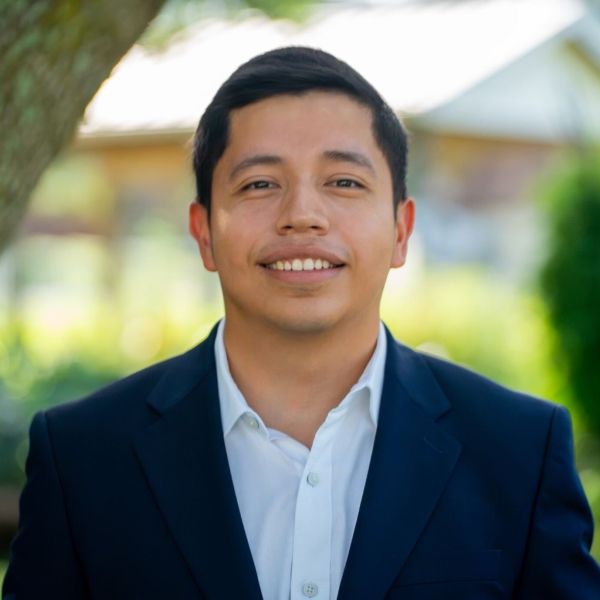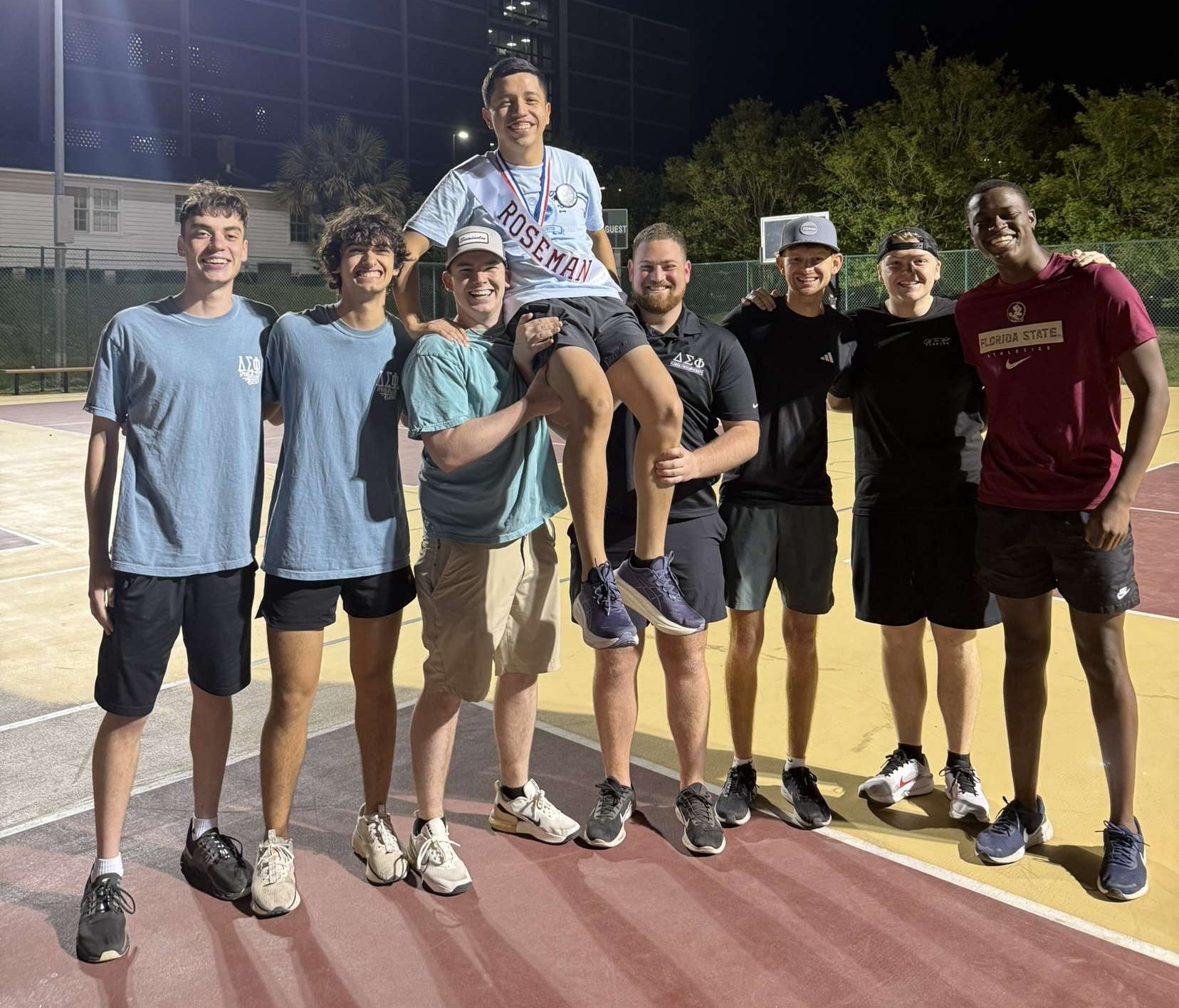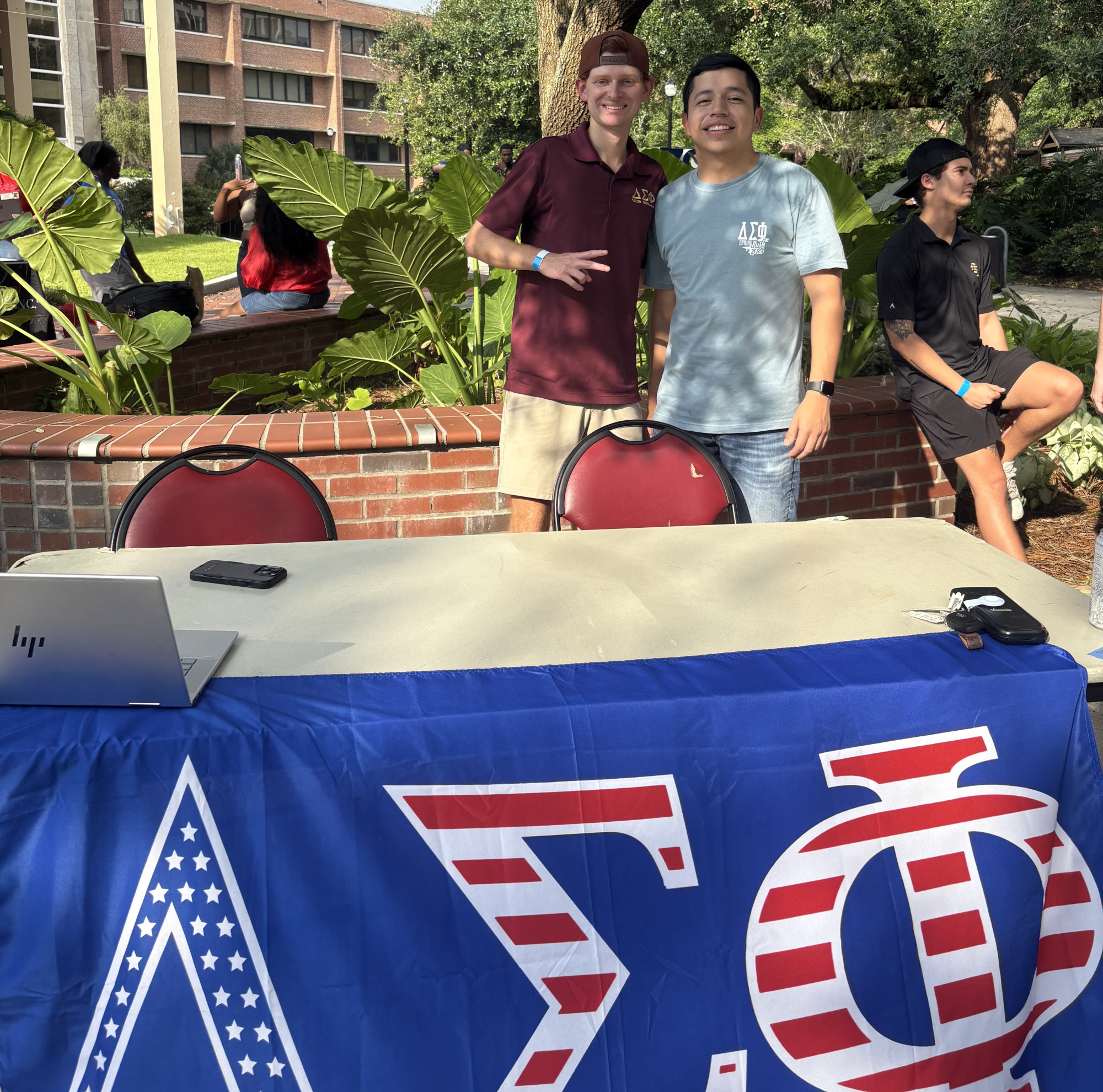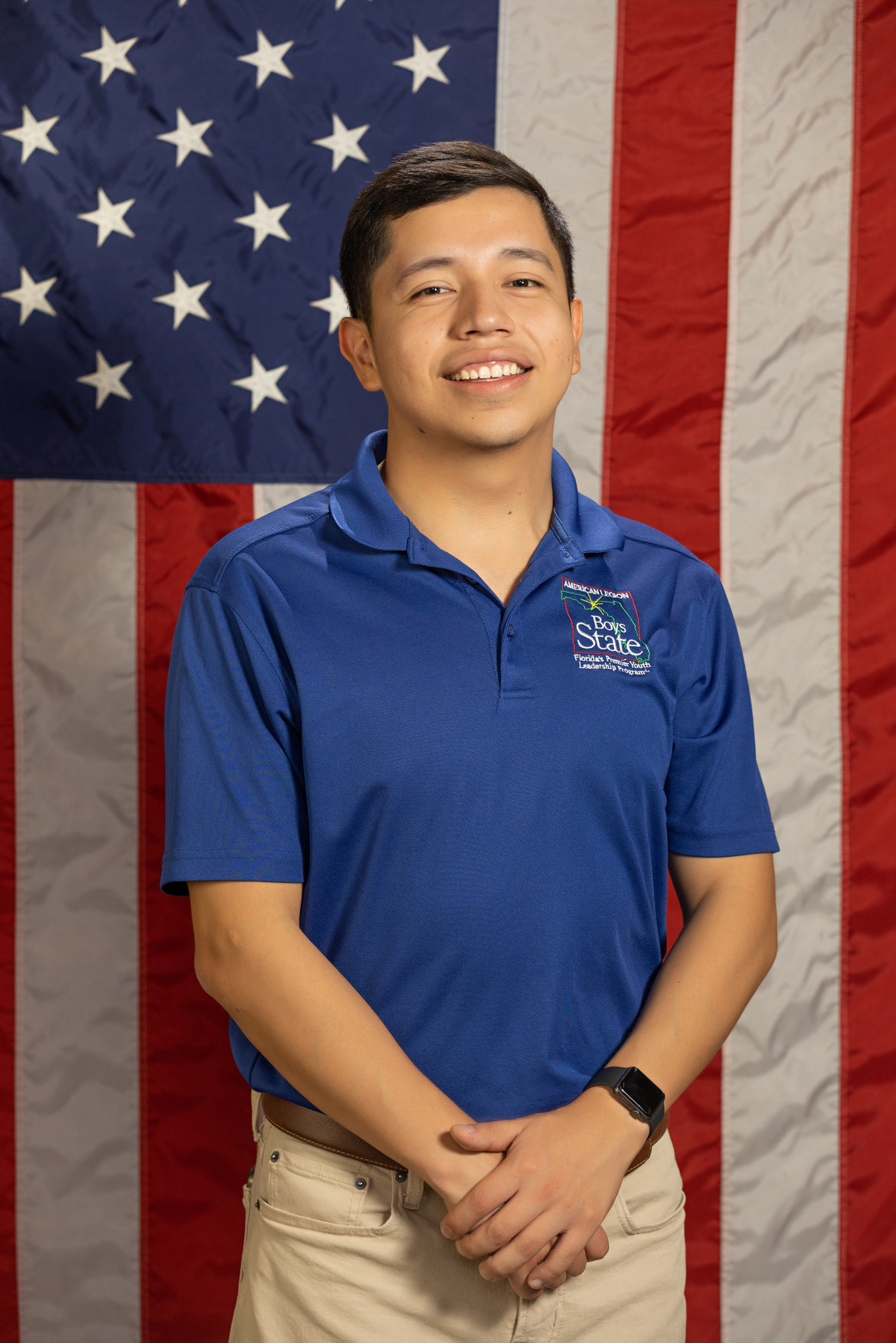
Built to Lead: The Making of a Brother, Mentor, and Future Public Servant
Written by
Elizabeth Allouche
Published on
September 26, 2025
Updated on
September 26, 2025
When Miguel Arceo-Miranda, Florida State '22, talks about his time at Florida State University, one theme rises above all others: building something that lasts.
As a founding father of Delta Sigma Phi’s Theta Xi Chapter, a student government leader, a researcher, and a community advocate, Miguel has used his college years to create opportunities—not just for himself, but for everyone around him.
“I tell people that my dad taught me how to lead and my mom taught me how to love,” he said. “That’s really what it all comes down to for me. Leadership is about responsibility, but it’s also about people.”

Building a Brotherhood
When Delta Sigma Phi returned to Florida State in 2022, Miguel was still weighing where he wanted to invest his time. Being a founding father was not at the top of his list.
“At first, complete transparency, it kind of seemed like a lot to me, and I didn’t really want to take it on,” he admitted. “But the more I thought about it, it was an opportunity to get involved right away and shape a chapter the way I wanted to see it shaped.”
But curiosity got the better of him. He attended their open house presentation, listened to what Delta Sigma Phi was offering, and realized this wasn’t just about social events—it was about the chance to create something lasting.
“I thought, if I’m going to join a fraternity, why not help build it from the ground up?” he said. “I wanted to be part of something where I could shape the culture and set the tone for what this brotherhood could be.”
Miguel and a small group of fellow students became the founding fathers of the Theta Xi Chapter. They set bylaws, recruited members, elected officers, and worked late nights drafting everything from event calendars to risk management plans. “We were starting with a blank page,” he said. “That’s exciting, but it’s also a lot of responsibility.”
That responsibility shaped him in ways he didn’t expect.
“It really developed my leadership ability in a way I could have never foreseen,” Miguel reflected. “It changed the way I’ve grown as a person over the past three years.”
The payoff wasn’t just organizational success. It was relationships—the late-night conversations with brothers, the older members who offered guidance, and alumni who checked in when the founders hit roadblocks.
“Being able to rely on a group of guys I trust has really helped me,” he said. “It really is a beautiful thing to be part of a fraternity and know that people do care about you.”

Scholar and Advocate
While fraternity life shaped Miguel’s leadership, the classroom became his laboratory for ideas. Double-majoring in political science and public relations, he quickly found himself drawn to questions about culture, identity, and politics.
“I’m proud of being Mexican. My parents were both born in Mexico and immigrated here, and I’ve grown up in that culture,” he said. “It frustrates me when Hispanics are portrayed as a one-issue voting bloc. We’re just like everybody else—we all think about what’s best for our families, not as one hive mind.”
That frustration became the seed for his most ambitious academic project. Supported by Florida State’s IDEA Grant program, Miguel launched Beyond the Binary, a study of Hispanic political behavior across the United States. Through Florida State’s IDEA Grant Program, Miguel earned the David B. Ford Undergraduate Research Award that allowed him to launch Beyond the Binary.
“We have Cubans, Mexicans, Puerto Ricans—each bringing their own stories and histories,” he explained. “The data looks like a mess, but it’s supposed to look like a mess.The various segments and demographic differences create unique immigration stories across the United States.”
The work earned him the David B. Ford Undergraduate Research Award and opened doors for future academic opportunities. But for Miguel, the recognition wasn’t the point—it was about telling perspectives that too often go unheard.
Service at the Center
Miguel’s heart for service stretches back to high school, when he helped create the Heartland Scholarship in his hometown of Sebring, Florida. What began as a single $2,500 award grew into multiple scholarships each year, supported by his family’s business and local partners. The program recently received recognition from the Highlands County Tourism Development Council for its humanitarian impact.
“I wanted to give back to the place that raised me,” Miguel said. “A lot of people in my community helped me along the way, and I wanted other students to have those same opportunities.”
That commitment carried into college, where he became a counselor for Boys State, an American Legion program that teaches high school students about civic duty. “As counselors, we’re not there to teach them our political ideologies,” he said. “It’s about showing them, as Americans, you have the chance to express your rights and participate in the civic process.”
For Miguel, both the scholarship and Boys State reflect the same philosophy that drives his fraternity involvement and academic research: making leadership accessible to those who need it most.

Preparing for What’s Next
As graduation nears, Miguel sees his time at Florida State as preparation for something larger. “College has been like the testing ground for a lot of things for me,” he said. “I’ve been in an environment where I can mess up and fall short, but reflect on what I did wrong and improve. With Delta Sig, I’ve been able to test out my leadership ability and improve on that day after day. With the scholarship or Boys State, I’ve been able to develop organizational skills in low-stress environments so I’ll be ready when the stakes are higher.”
And the stakes, he hopes, will one day be very high.
“I do want to run for office one day. That’d be the dream for me,” he said. “It doesn’t matter where, but I love working for the community. I just don’t see myself doing anything different. Civic leadership—that’s the goal. That’s the life ahead of me.”
Wherever that path leads, Delta Sigma Phi will remain part of the story. “I hope one day I’ll be able to return, see my original composite on the wall, and say, ‘Yeah, that’s me, guys.’ I want to be an open door for the chapter, a resource for them, just like the alumni were for us.”
For Miguel Arceo, leadership isn’t just about building a résumé. It’s about leaving behind structures—whether a fraternity, a scholarship, or a civic program—that others can grow into long after he has moved on.